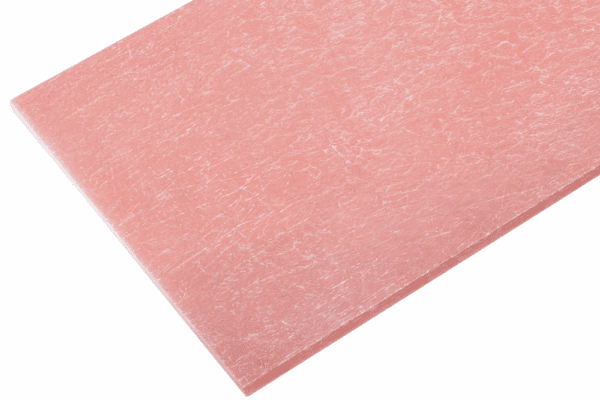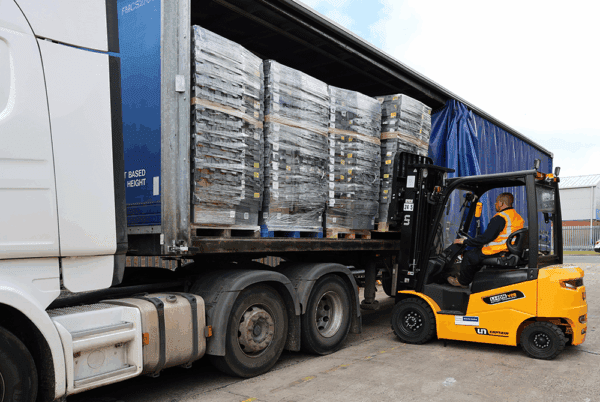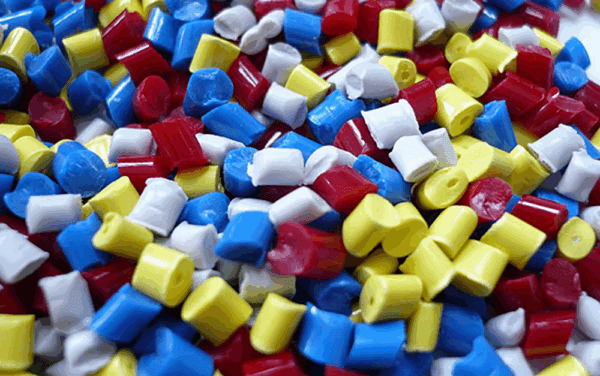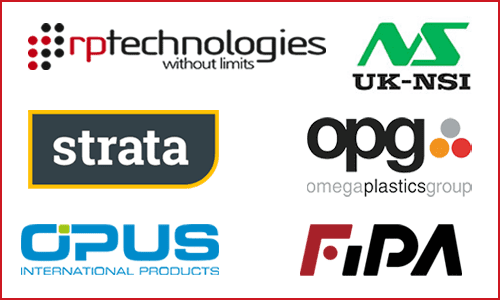
ARBURG’s Robot Cell Helps Customer Meet High Demand
|
Getting your Trinity Audio player ready...
|
ARBURG and integration partner RNA have supplied a new automation cell to technical injection moulder R A Labone in Derbyshire for the manufacture of tyre pressure sensor housings for HGVs. The cell involves insert-moulding two metal components, an antenna and a metal injection moulding, to form the housing.
RNA and ARBURG combine to increase output
The new automated cell complements a previous automation cell to match higher customer demand, and the collaboration between R A Labone, ARBURG and RNA led to significant improvements in the automation design. The cell is built around an ARBURG ALLROUNDER 1300 T 1000 – 290, a 100-ton machine with a 1300mm table diameter. Two six-axis robots are used for loading the inserts and finished parts removal, enabling an optimum cycle time, while several digital cameras are involved in the quality control process. It uses a vibrating bowl and linear feeding system for feeding each insert; four of each insert are loaded into the 4-cavity mould tool in one visit, with the position checked by camera.
On completion of the cycle, the finished mouldings are removed and loaded onto a rotary table for cooling and quality checks, including a height measurement check for the antenna press-fit terminal ends. The new cell was necessary to meet higher customer demand. It has produced over 1 million parts so far this year (July), running three shifts, five days a week, and is designed to produce about 50,000 parts per week.
Necessary upgrade
R A Labone’s tier one automotive customer required a more than doubling of output, to over 5 million parts per annum, necessitating the automation investment. Previous automation cells have been built off-site, where integration to the moulding machine was then carried out after delivery to R A Labone. This typically resulted in an extended period of development (c. six months) before running fault-free.
R A Labone chose ARBURG and RNA for faster cell introduction and their ability to debug the complete cell including the moulding process, before delivery to the site. Because the RNA and ARBURG team tested onsite over several weeks, they ironed out the inevitable engineering and software issues before the R A Labone team became involved for SAT testing. After the cell was delivered, the time to full SAT approval was much shorter than with previous automation projects.
Quality control
Parts are 100% tested within the process for continuity and antenna placement, meaning the end customer receives zero defects. Good parts are marked with a pin marker and moved to a box changing system with a six-axis robot. Failed parts are segregated using a chute, ensuring they cannot be mixed with good parts. On the new cell, the testing process was improved by inverting the part before testing, creating a stable base for repeatable measurement of the antenna position to +/-0.13 mm.
Specialist machine is the first in the UK
The cell uses a new moulding machine model, a 1300 T 1000 – 290. This is the first 1300T machine in the UK – all previous automation cells at R A Labone used a 1200T the larger table diameter allows larger tools, and bifold side panel doors allow better access and integration with the automation system.
Chris Young, managing director of R A Labone, said, “Having the ARBURG and RNA team commissioning and debugging the system before delivery to our site allowed them access to all the people involved in building the system. There are several different skills required in a configuration like this, and they were all available during the debug stage. This made a huge difference and enabled us to attain high production rates soon after delivery to our site.”
Gavin John, turnkey automation engineer at ARBURG, said, “This was a technical brief to build a more reliable automation process where the KPIs were substantially higher output rates and better quality. ARBURG and RNA formed a great partnership with complementary skills and integrating knowledge of injection moulding with automation handling and were devoted to achieving the customer’s requirements. Both our teams and R A Labone are happy that the final solution is working well with almost no technical issues and is meeting customer demand.”
Read more news from ARBURG here.
ARBURG
01926 457000
Email
Website






